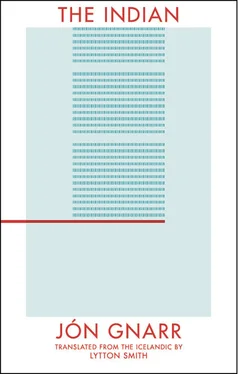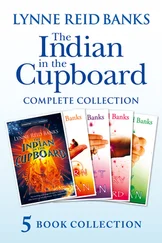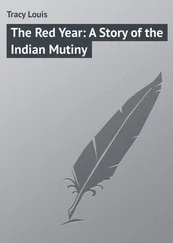He drew a picture of his own accord and told me that it was Satan. I asked for more information about this person, and he said that he is friends with the octopus.
I cannot say for sure what I have discovered in my very limited contact with this child, based on the hour that I was with him. I think it would be safe to say that he never looked at me from beginning to end. He seemed to show absolutely no consideration for me. He went away and seemed no wiser than when he came.
(National Hospital, Psychiatric Ward,
Children’s Hospital Trust, 07/03/1973)

I went out and got a few big rocks. I had to make several trips because they were so heavy. I gathered them in a pile by the porch. Then I snuck in with them, one by one, without my mom seeing. I was sure she’d ban them. I put some in my Liverpool FC bag and wrapped my coat around others; I took them up into my room and hid them in a closet.
When I was done carrying all the stones I went back out and gathered firewood. I filled my Liverpool bag with thin sticks and kindling. Then I took the stones out of the closet and arranged them in a circle on the floor. I put the sticks and the kindling in the middle of the ring.
I built my fireplace like the Indians in cowboy movies do. It would be cozy to lie in bed and read Duck Tales beside a crackling campfire. Mom would certainly be thrilled when she saw it. Dad would sit beside me, or maybe at the campfire, when he came home from work. We could go out to the Elliðaár River. I could catch a few salmon and we could come back and grill them over my fire.
I’m an Indian. I’m in a tribe of Indians. Mom won’t sew me Indian clothes. She’s stopped sewing because of the arthritis in her fingers. But I’ve got a knife and a headdress with feathers in it, which I bought in a toy store in the Grímsbær shopping center. It’s really very handsome, with a brown plastic stretchy headband that goes around your forehead. The plastic piece goes over your ears and hangs down from them.
On the headpiece there’s all sorts of patterns; colorful feathers stick up into the air from your forehead and hang down over your shoulders. These feathers are like the ones chieftains have.
The knife is real, big and strong, in a leather holster that has a glorious leather smell. Dad calls him Sting. But it’s an Indian knife, a real and authentic Indian knife: Made in U.S.A. I do not know what that means but I think it is some kind of Indian mark. Maybe it’s the name of some Indian chief. A knife is the only thing an Indian needs. Everything else can be taken away from him. He can be in everyday clothes and he can look like everyone else. But he never forgets his knife. He needs it in order to defend himself, to cut all kinds of rope, to whittle, to hunt dinner.
When the fire was ready, I snuck out. Mom was talking on the phone inside her room. I casually walked into the living room. I took a big table lighter from the table and stuck it in my pocket. Then I went back into my room and lit the fire pile.
It didn’t take the fire long to get under way. First the paper burned, then as it reached the flames it engulfed the sticks and before I knew it the fires of Hell had broken out. And smoke! My eyes stung and I was in tears. The room was full of smoke. I ran outside, coughing. Mom broke off her phone conversation and came running. The smoke was out of the bedroom door.
— What the devil have you been doing, child?
Later that day, Dad came home. I knew it was because of the fire. I knew why he had come. I had a knot in my stomach. I tried to breathe but I couldn’t fill my lungs.
It’s terrible being spanked. I tried to stick against the bed and hide my butt from him. But he was stronger than me. He picked me up in his hands and put me over his knees.
My tears fell freely. My heart was thrashing about like it wanted to rip itself out of my chest and escape: to climb up the bookshelves and sit there, or to run all the way, in one burst, to Aunt Salla’s house.
I fought tooth and nail and cried like a condemned man:
— I’ll never do it again! I’ll never do it again, I’ll never do it again!

His aggression frequently vents itself quite directly, though when he’s stuck in a hole he tends to find it more advisable to run and hide […] He is exceedingly simple in the way he identifies with others’ lives and experiences […] To help deal with his anxiety and unpleasant feelings, the boy employs denial, albeit sometimes with good reason. Also, he tries to escape or avoid discomforting or anxiety-inducing situations, often through a quite mechanical restlessness in his behavior.
(National Hospital, Psychiatric Ward,
Children’s Hospital Trust, 09/05/1972)

There’s a bad smell in my room, a sour, burned smell. It lasts for many weeks. There is a huge burned spot on the carpet. A monument to yet another defeat for the Indians in the ruthless world of the white man.
I go out of my room. Mom is setting coffee cups and plates on the kitchen table. They are for visiting guests, clearly for people we know. Family and friends drink coffee in the kitchen. Only strangers get coffee in the living room. And only strangers get to drink coffee from the fancy cups.
— Who’s coming? I ask.
— No one in particular.
She sets out cake forks for the Christmas randalín .
— Who’s coming? I ask again.
— The girls are just coming to get made up, she replies.
It’s fun to put on makeup. Mom’s girlfriends, her sisters, come over to visit. And they get made-up. Mom laughs and is happy. I like seeing her happy. It happens all too rarely. Usually she’s just tired. But not when she does makeup. That’s always good fun.
Mom doesn’t say much when she’s at home with just Dad and me. Mom and Dad rarely talk, except when they argue about bridge. They play bridge on Monday evenings. When they come home, they’re arguing. I hear the quarrel until I fall asleep.
— Why did you say Three No Trumps on that hand, idiot! What gave you that idea? You must trust your partner!
— That hasn’t worked out in the past, though.
— And the round before that — what were you playing at?
— I had a decent hand of clubs.
— Why didn’t you lead, then, with clubs?
— Oh, so you think that would have made sense?
— Yes, at least it would have worked!
The doorbell rings. I know now that you don’t say “tinkles.” Stebbi’s mother taught me that. She often corrects me. She taught me that one “rings” a doorbell but doesn’t “tinkle” it. But you can tinkle a bell that’s on a table.
Gunna has arrived. She’s Mom’s sister. She’s fat and large. She’s a hoot. It’s like she’s a guy. She belches without putting her hand over her mouth. She farts, too, so everyone can hear; it’s freaking hilarious.
— I’ve got awful gas!
She talks loudly and sometimes says something funny that I don’t always get. I like, though, the way she says things. Sometimes she says something funny to my Dad when he’s grumbling about something boring like smoking or something someone said on the radio.
— Are you still smoking, Gunna?
— Why the dickens do you care?
— Didn’t you promise me you’d stop?
— I’ve never promised you anything.
Dad doesn’t know what to say to that.
Once she looked at me and said to my mother:
Читать дальше





![О Генри - Бабье лето Джонсона Сухого Лога [The Indian Summer of Dry Valley, Johnson]](/books/407344/o-genri-babe-leto-dzhonsona-suhogo-loga-the-india-thumb.webp)









